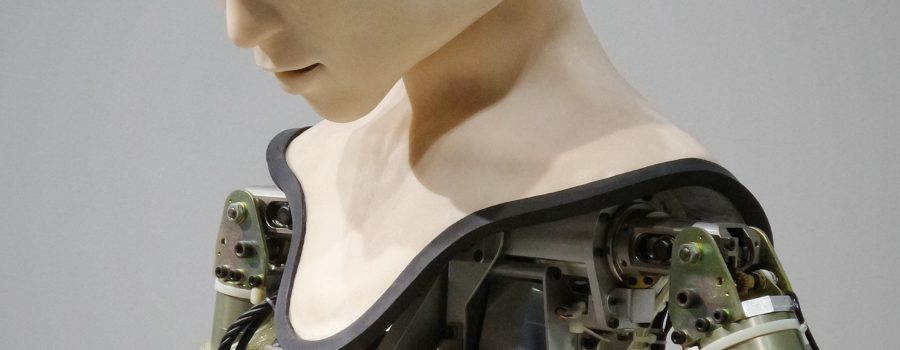Artificial Intelligence (AI) was a concept embedded in myths, stories and rumour since antiquity.
Artificial Beings gifted with intelligence or consciousness by master craftsmen. Classical thought over millennia
culminated in the invention of the first programmable digital computer in the 1940’s and since then the explosion
has been geometrical and exponential. Technology creating Technology.
Artificial Intelligence is our journey to understand and replicate nature’s algorithms.
Those building blocks that extend between a single cell’s urge to forage for food, to replicate and survive their environment to the invention of Large Hadron Collider with the discovery of the Higgs boson particle… and beyond.
AI has slowly permeated our lives, ask “Siri” or “Alexa”.
Our world is steadily being imbued with behavioural algorithms, suggestive searches and
autonomously-powered self-driving vehicles (with powerful predictive capabilities) coming into its own.
Experts say that these are, but the first green shoots and it boggles the mind to imagine what the resplendent tree might be.
Reality is constantly defined by the bounds of our innovation and imagination. Don’t believe me… Ask Evolution.
Data Points
– Today, just 15% of enterprises are using AI. But 31% said it is on the agenda for the next 12 months.
– When asked about the next big marketing trend, survey respondents identified consumer personalization (29%), AI (26%), and voice search (21.23%). These top three responses, which total 75% of all AI applications, demonstrate that AI is more pervasive and prominent than respondents realize.
– Forty-seven percent of digitally mature organizations, or those that have advanced digital practices, said they have a defined AI strategy.
– Business leaders said they believe AI is going to be fundamental in the future. In fact, 72% termed it a “business advantage.”
– Sixty-one percent of those who have an innovation strategy said they are using AI to identify opportunities in data that would otherwise be missed. Only 22% without a strategy said the same.
– Consumers use more AI than they realize. While only 33% think they use AI-enabled technology, 77% use an AI-powered service or device.
– Thirty-eight percent of consumers said they believe AI is going to improve customer service.
– Sixty-one percent of 6,000 people surveyed said they believe AI will make the world a better place.
– In a survey of over 1,600 marketing professionals, 61%, regardless of company size, pointed to machine learning and AI as their company’s most significant data initiative for next year.
– The impact of AI technologies on business is projected to increase manpower productivity by up to 40% and enable people to make more efficient use of their time.
– The largest companies—those with at least 100,000 employees—are the most likely to have an AI strategy, but only half have one.*
The next 100 years will see Artificial Intelligence coming into its own becoming smarter, faster, more fluid and human-like, due to the rise of Quantum Computing. Giving us the means to solve all of life’s most complex problems and mysteries regarding the environment, ageing, disease, war, poverty, famine, the origins of the universe and deep-space exploration, just to name a few.
But then power corrupts, and absolute power corrupts, absolutely.
What are the massive implications of unleashing the power of such magnitude that as the first Quantum Computers go online they render the rest of the world’s computing obsolete? How do existing architectures deal with such a threat? In the absence of any sort quantum computer resilient cryptography? What are the devasting consequences when a bad actor accesses such power laying to waste massive digital infrastructures?
It will have to be a process or a culture that is vaccinated with abundant caution and responsibility; given man’s constant urge to weaponise power.
(* Reseach sources CMO, Adobe & Forbes)
(Photo by Franck Veschi on Unsplash)




Recent Comments